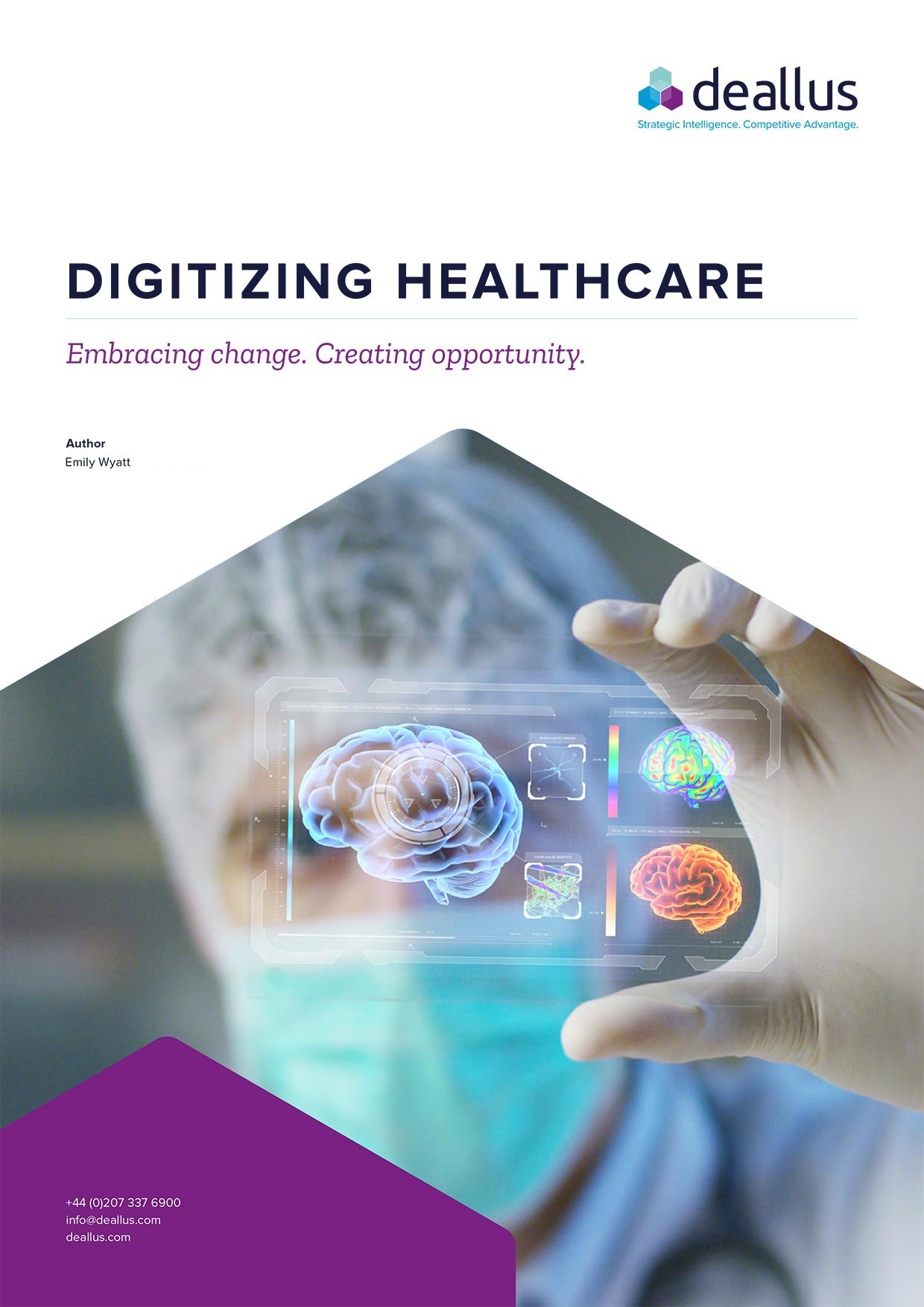Digitizing Healthcare – Embracing change. Creating opportunity.
Emily Wyatt
The future of healthcare is digital
For many industries, embracing digitization has become a matter of survival. Healthcare has always had a reputation of being resistant to change, but consumer demand and a rapidly evolving technology-driven world have led the digitization of healthcare to move at a frantic pace.
In comparison with other industries, healthcare has been slow to take advantage of the digital revolution. Traditionally healthcare has always been a difficult industry in which to innovate; it is highly regulated, expensive, complex and risk averse. However, rising drug development costs, increased patient expectations, and a growing dependence on health resources, place the industry under increasing pressure to move with the times. Many organizations with an interest in health, including the pharmaceutical industry, medical technology companies, health insurers, and payers are focusing on the digital world. However, the strongest digital health innovators are now coming in from outside the industry.
How tech companies are driving digital transformation
Healthcare represents an incredibly lucrative opportunity for traditional technology companies. The tech giants – Alphabet (the parent company of Google), Amazon, Apple, Microsoft and IBM – are taking the lead and heavily investing their time, resource and talent into healthcare.
Each of the major tech companies are using their core business strengths to create digital health initiatives across a variety of platforms. These are being implemented at every touchpoint of the patient/health professional journey ranging from data storage, artificial intelligence (AI), e-commerce, voice-enabled solutions, consumer apps and wearables. By developing tools that patients and health professionals embrace, and through collaborations with healthcare providers, the Big 5 are poised to reinvent the healthcare industry.
About the author
Emily Wyatt
Emily is a Senior Associate based in the London office. Since joining Deallus, Emily has lead research for top tier pharmaceutical clients supporting their global strategy to implement personalised healthcare initiatives across the value chain. She has also facilitated competitive simulation workshops looking at the impact of Tech disruption in healthcare. Emily has significant experience across a variety of therapeutic areas and industries including neuroscience, oncology, immune-oncology, companion diagnostics, liver diseases, autoimmune diseases and personalised healthcare.
Emily holds a MPhil in Bioscience Enterprise from the University of Cambridge and a BSc Honours in Biochemistry from the University of Bristol. Throughout her career, Emily has also developed strong expertise in the medical devices space, having led business development projects for medical device companies in oncology and inflammatory diseases.
You may also be interested in…
World Brain Day 2024
Established by the World Federation of Neurology in 2014, World Brain Day seeks to raise public awareness on various neurological health topics each year. This year’s theme, “Brain Health and Prevention”, brings awareness to preventive measures that can alleviate the burden of many neurological conditions for patients across the world.
World Kidney Cancer Day: The future of RCC treatment
World Kidney Cancer Day brings much needed attention to a disease affecting hundreds of thousands of people worldwide.
Revolutionizing Blood Cancer Treatment: A Dive into Cutting-Edge Therapies
World Blood Cancer Day [28 May 2024] serves as a stark reminder of the significant challenges faced by the millions battling these life-threatening diseases. Here at Deallus, we have been privileged enough to partner with many leading companies in this space to support the development of lifechanging therapies across haemato-oncology.
World Day for Cultural Diversity 2024
Feel the driving force of Cultural Diversity as voiced by my global Deallus colleagues. Happy World Day of Cultural Diversity!






